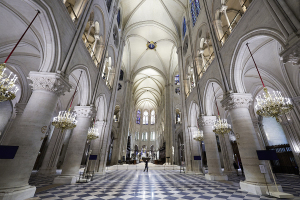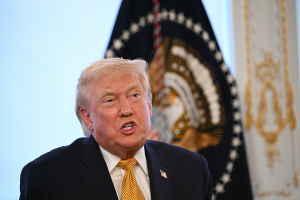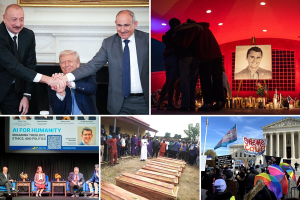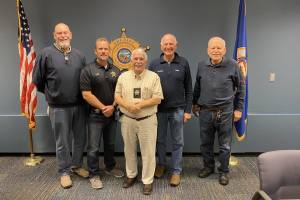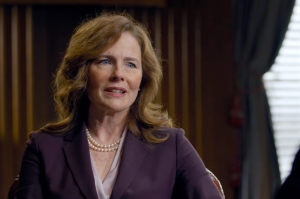Judge Denies Motion to Dismiss National Day of Prayer Suit
A federal judge this week denied motions to scrap a suit by a group of atheists challenging the constitutionality of the National Day of Prayer.
U.S. District Judge Barbara Crabb of Wisconsin on Thursday rejected filings by defendants President Barack Obama, White House press secretary Robert Gibbs and National Day of Prayer Taskforce chairperson Shirley Dobson to dismiss the federal lawsuit.
In doing so, Crabb allowed the Wisconsin-based Freedom From Religion Foundation to move forward with discovery.
The FFRF, whose stated purpose is to work toward the separation of church and state, claims in its suit that a federal law designating the National Day of Prayer, proclamations issued by the President and Wisconsin governor Jim Doye in calling on people to pray, and activities led by the NDP Taskforce violate the Establishment Clause of the Constitution.
The Alliance Defense Fund, a Christian legal group which is representing Dobson in the case, had asked the court to throw out what it considered an "anti-prayer" lawsuit. The group argued in legal motions that the plaintiffs lacked standing to sue and failed to specify how they have suffered harm.
"Prayer proclamations are a long-established and cherished American tradition going back to the Founding Fathers," Oster had previously stated. "This is simply a ridiculous lawsuit and an example of one radical organization's allergic reaction to anything involving God."
In his written opinion, Crabb stated the defendants' arguments have "merit and ultimately may be successful" but rejected them as "premature" because summary judgment is yet to be issued.
A national day of prayer was unofficially established more than 200 years ago by President George Washington, who in 1795 issued a proclamation setting aside Feb. 19 as a day of public thanksgiving and prayer. In 1952, President Harry S. Truman established a national day of prayer via a joint resolution of Congress. In 1988, President Ronald Reagan amended and signed a law permanently designating the first Thursday in May as the National Day of Prayer.
FFRF plaintiffs, however, dispute that the history of the National Day of Prayer can be traced back to the founding of the country.
"This is absolutely untrue, and the White House brief perpetuates this myth, and makes many other claims based on bad history," said president emerita Anne Nicol Gaylor. "We're going to set the record straight."
In response to the lawsuit, 31 members of Congress have come out in defense of the National Day of Prayer and defendants named in the suit. They are represented by The American Center for Law and Justice which has filed a friend-of-the-court brief on behalf of the U.S. legislators.
This year, Americans across the country observed the 58th annual National Day of Prayer on May 7. Governors from all 50 states issued prayer proclamations.
The NPD Taskforce said it saw a 19 percent increase this year in public event postings on its Web site compared to last year.
President Obama issued a proclamation for the prayer observance but unlike his predecessor did not mark the National Day of Prayer with an official White House event.
Last year, President George W. Bush marked the National Day of Prayer with Shirley Dobson and her husband, evangelical leader Dr. James Dobson who founded Focus on the Family.
The next National Day of Prayer is scheduled for May 6, 2010.















